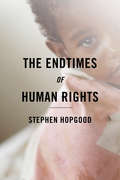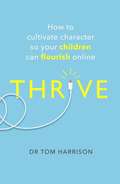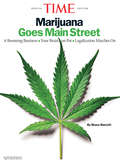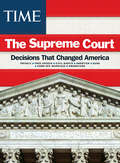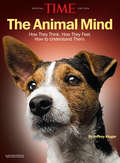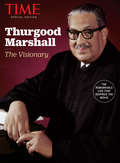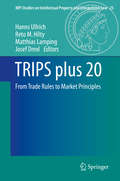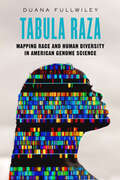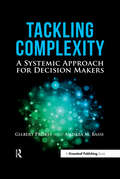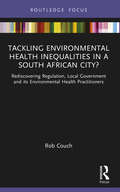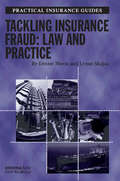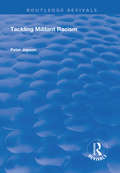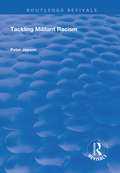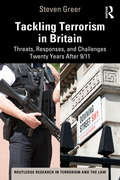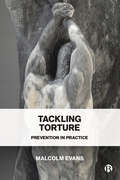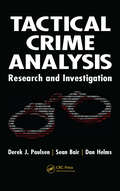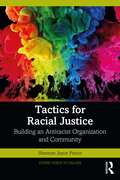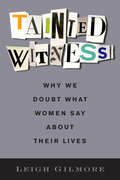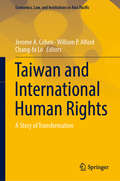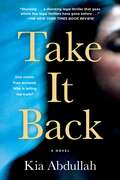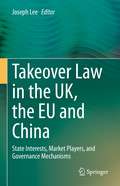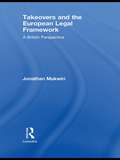- Table View
- List View
THE endtimes OF human rights
by Stephen Hopgood"We are living through the endtimes of the civilizing mission. The ineffectual International Criminal Court and its disastrous first prosecutor, Luis Moreno-Ocampo, along with the failure in Syria of the Responsibility to Protect are the latest pieces of evidence not of transient misfortunes but of fatal structural defects in international humanism. Whether it is the increase in deadly attacks on aid workers, the torture and 'disappearing' of al-Qaeda suspects by American officials, the flouting of international law by states such as Sri Lanka and Sudan, or the shambles of the Khmer Rouge tribunal in Phnom Penh, the prospect of one world under secular human rights law is receding. What seemed like a dawn is in fact a sunset. The foundations of universal liberal norms and global governance are crumbling. "-from The Endtimes of Human Rights In a book that is at once passionate and provocative, Stephen Hopgood argues, against the conventional wisdom, that the idea of universal human rights has become not only ill adapted to current realities but also overambitious and unresponsive. A shift in the global balance of power away from the United States further undermines the foundations on which the global human rights regime is based. American decline exposes the contradictions, hypocrisies and weaknesses behind the attempt to enforce this regime around the world and opens the way for resurgent religious and sovereign actors to challenge human rights. Historically, Hopgood writes, universal humanist norms inspired a sense of secular religiosity among the new middle classes of a rapidly modernizing Europe. Human rights were the product of a particular worldview (Western European and Christian) and specific historical moments (humanitarianism in the nineteenth century, the aftermath of the Holocaust). They were an antidote to a troubling contradiction-the coexistence of a belief in progress with horrifying violence and growing inequality. The obsolescence of that founding purpose in the modern globalized world has, Hopgood asserts, transformed the institutions created to perform it, such as the International Committee of the Red Cross and recently the International Criminal Court, into self-perpetuating structures of intermittent power and authority that mask their lack of democratic legitimacy and systematic ineffectiveness. At their best, they provide relief in extraordinary situations of great distress; otherwise they are serving up a mixture of false hope and unaccountability sustained by human rights as a global brand. The Endtimes of Human Rights is sure to be controversial. Hopgood makes a plea for a new understanding of where hope lies for human rights, a plea that mourns the promise but rejects the reality of universalism in favor of a less predictable encounter with the diverse realities of today’s multipolar world.
THRIVE: How to Cultivate Character So Your Children Can Flourish Online
by Dr Tom HarrisonWinner of the International Federation for Family Development Award.When Dr Tom Harrison, a leading expert in the field of character education and the Internet, bought his daughter her first smartphone, a major milestone had been reached: she had entered the 'cyber-world'. Harrison no longer needed to know what to think; he needed to know what to do. This is the first practical book of its kind to show parents and teachers how to develop character as the foundation for helping young people to thrive in their online interactions. It answers the question: How do we prepare our children to do the right thing when no one is watching?Based on his own experience as a parent, more than a decade of research and thousands of conversations with parents, teachers, children and policymakers, the REACT and THRIVE models have been developed to engage with character, wellbeing, social and emotional learning, ethics and digital citizenship - all the ingredients for flourishing online.The world is waking up to the importance of character for individual and wider societal flourishing. Harrison is at the forefront of this movement and is regularly invited to advise policymakers and thousand of teachers and parents around the world. This book is a must-read for parents and educators who want to help children not just survive but thrive online in their cyber-worlds.
THRIVE: How to Cultivate Character So Your Children Can Flourish Online
by Dr Tom HarrisonWinner of the International Federation for Family Development Award.When Dr Tom Harrison, a leading expert in the field of character education and the Internet, bought his daughter her first smartphone, a major milestone had been reached: she had entered the 'cyber-world'. Harrison no longer needed to know what to think; he needed to know what to do. This is the first practical book of its kind to show parents and teachers how to develop character as the foundation for helping young people to thrive in their online interactions. It answers the question: How do we prepare our children to do the right thing when no one is watching?Based on his own experience as a parent, more than a decade of research and thousands of conversations with parents, teachers, children and policymakers, the REACT and THRIVE models have been developed to engage with character, wellbeing, social and emotional learning, ethics and digital citizenship - all the ingredients for flourishing online.The world is waking up to the importance of character for individual and wider societal flourishing. Harrison is at the forefront of this movement and is regularly invited to advise policymakers and thousand of teachers and parents around the world. This book is a must-read for parents and educators who want to help children not just survive but thrive online in their cyber-worlds.
TIME Marijuana Goes Mainstreet: A Booming Business - Your Brain on Pot - Legalization Marches On
by Bruce BarcottWelcome to the end of the war on pot. With more landmark legislation in 2016, marijuana has continued its march toward legalization and normalization, 29 states having gone medically legal. In this updated adaptation, based on Bruce Barcott's groundbreaking book Weed the People, we look at some of the key issues surrounding pot:What benefits has it shown in treating conditions ranging from glaucoma to multiple sclerosis to PTSD? How did it come to be classified as a Schedule I drug?Who are the harvesters, investors and entrepreneurs bringing pot out of the shadows and grow rooms and into the marketplace?How does such a marketplace come to exist amid a complicated regulatory framework?Where do we go from here, at a time when states are increasingly pro-legalization but a new federal administration could change things at any time?
TIME Supreme Court Decisions
by The Editors of TIMETIME Magazine examines important decisions by the Supreme Court.
TIME The Animal Mind: How They Think. How They Feel. How to Understand Them.
by The Editors of TIMEThey work with us, they play with us . . . but what do they think of us?Some of our best friends are animals. But what are they really thinking? Discover the rich inner lives of dogs, cats, whales, elephants, parrots, and dozens of other animals-even insects-with this thought-provoking book, packed with elegant animal portraits from the pages of Time magazine. From dogs that seem to sense our emotions, to cats that linger by the bedside of the dying, to apes that use sign language to express their thoughts, TIME The Animal Mind explores what really goes on in the brains of creatures great and small. The latest research and scientific evidence is here, along with a discussion of animal rights. How do dog packs work? Do animals laugh? Do they talk? Do they mourn? Do they have friends? Every animal lover will be amazed and intrigued by this insightful journey into the animal mind.
TIME Thurgood Marshall: The Visionary
by The Editors of TIMEAs an accomplished civil rights lawyer, then serving as the first African-American justice on the Supreme Court, Thurgood Marshall changed the face and course of justice in America, becoming an inspirational figure for millions. From his early days at Howard University, to his 25-year association with the NAACP, and the landmark case Brown v. Board of Education, he championed and triumphed in dozens of cases on civil liberties, affirmative action, the rights of the accused, and the death penalty. As a Supreme Court Justice, his interpretation of the Constitution led to the insurance of fair treatment for the disadvantaged in a world where judges, police, and legislatures could not be counted on to use their power fairly, and he became a voice for the voiceless. Now, in a new Special Edition from TIME, Thurgood Marshall: The Visionary, his life and legacy are examined through thoughtful essays and historic photographs. This Special Edition traces his upbringing in Baltimore, MD, his years in college and law school, his work with the NAACP, his relationship with Lyndon Johnson and more. Chapters outline the major cases that came before the Court during his tenure along with his position, and another, ÒIn Their Own Words,Ó brings together thoughtful remembrances from those who knew and worked alongside him, including Vernon Jordon, Juan Williams and Constance Baker Motley. Firmly placing Marshall in the context of his time as a visionary and examining how his social and legal legacy lives on to this day, Thurgood Marshall is a thoughtful portrait of a great American.
TRIPS plus 20
by Josef Drexl Reto M. Hilty Hanns Ullrich Matthias LampingThis book examines the impact and shortcomings of the TRIPS Agreement, which was signed in Marrakesh on 15 April 1994. Over the last 20 years, the framework conditions have changed fundamentally. New technologies have emerged, markets have expanded beyond national borders, some developing states have become global players, the terms of international competition have changed, and the intellectual property system faces increasing friction with public policies. The contributions to this book inquireinto whether the TRIPS Agreement should still be seen only as part of aninternational trade regulation, or whether it needs to be understood - or even reconceptualized- as a framework regulation for the international protection of intellectualproperty. The purpose, therefore, is not to define the terms of an outright revision of theTRIPS Agreement but rather to discuss the framework conditions for an interpretative evolutionthat could make the Agreement better suited to the expectations and needs of today's globaleconomy.
Tabula Raza: Mapping Race and Human Diversity in American Genome Science (Atelier: Ethnographic Inquiry in the Twenty-First Century #14)
by Duana FullwileyDuana Fullwiley has penned an intimate chronicle of laboratory life in the genomic age. She presents many of the influential scientists at the forefront of genetics who have redefined how we practice medicine and law and understand ancestry in an era of big data and waning privacy. Exceedingly relatable and human, the scientists in these pages often struggle for visibility, teeter on the tightrope of inclusion, and work tirelessly to imprint the future. As they actively imagine a more equal and just world, they often find themselves ensnared in reproducing timeworn conceits of race and racism that can seed the same health disparities they hope to resolve. Nothing dynamic can live for long as a blank slate, an innocent tabula rasa. But how the blank slate of the once-raceless human genome became one of racial differences, in various forms of what Fullwiley calls the tabula raza, has a very specific and familiar history—one that has cycled through the ages in unexpected ways.
Tabú
by Ferdinand von SchirachVon Schirach vuelve a desplegar su mirada penetrante y sensible a las turbulencias internas del ser humano y su preocupación por las grandes cuestiones éticas de nuestro tiempo. En esta novela Von Schirach replantea algunos de los grandes interrogantes de siempre: la validez del sistema de justicia en casos excepcionales, con la consiguiente justificación de transgredir o no la ley vigente. Nacido en una familia aristocrática venida a menos, Sebastian von Eschburg es un niño solitario e introvertido, con una madre que sólo se interesa por las carreras de caballos y un padre alcoholizado y aficionado a la caza, a quien, no obstante, lo une un fuerte vínculo. Con el tiempo, la extraordinaria percepción del color que posee Sebastian transformará al niño sensible y vulnerable en un famoso fotógrafo, un artista internacionalmente reconocido que plasma en sus obras una tormentosa relación entre ficción y realidad, verdad e ilusión. Sin embargo, en un giro inesperado, su vida cambia por completo cuando una llamada telefónica a la policía lo convierte de la noche a la mañana en el presunto asesino de una joven desaparecida. La crítica ha dicho...«La fluida y elegante prosa de Von Schirach nos presenta a un antihéroe acusado de asesinato, que ve el mundo en colores demasiado vivos, y a su engreído abogado defensor, que lo ve todo con matices grises. De ahí resulta una desconcertante mezcla de clímax y anticlímax, de tensión y humor, de mentiras y verdades, y una novela tan singular e intrigante como su protagonista.»The Guardian «Von Schirach narra la infancia del personaje principal con las hermosas y diáfanas frases que ya convirtieron en bestsellers sus dos libros anteriores, Crímenes y Culpa, transformando los casos judiciales en una narrativa sobresaliente.»Die Welt «Un libro que desconcierta tanto como emociona.»Sonntag «Tabú es una prueba de que las obras maestras también pueden escribirse en un lenguaje sencillo y lacónico.»Dorstener Zeitung «Von Schirach es un autor extraordinario, y Tabú, una obra muy lograda. [...] Los giros son asombrosos no sólo en lo que respecta al contenido, sino también conceptualmente.»Fabelhafte Bücher «Un libro breve, enigmático y fascinante.»The Observer «El mayor logro de Von Schirach es demostrarnos que, por monstruosos que puedan parecer sus actos, el ser humano nunca deja de ser humano.»Libération
Tackling Complexity: A Systemic Approach for Decision Makers
by Gilbert Probst Andrea BassiOur socio-economic systems continue to grow and evolve. We need to acknowledge that, consequently, our decisions often fail – they are ineffective and create unexpected side effects. The speed of execution is increasing constantly and markets and systems respond almost immediately, making decision-making challenging. There is little or no room for failure.This important new book analyses real world strategy and policy challenges, addressing the interconnectedness of the markets/systems we live in. It provides a step-by-step approach using systems thinking to solve complex problems in socio-political as well as business environment. It proposes a technique with which to better understand the problems and the context in which they arise, and tools to directly inform each step of the decision-making process. The book explores the main innovation that systemic thinking introduces – the emphasis on defining the problem creating system, which is made up of interacting parts, rather than prioritizing events that need immediate fixing.The case studies, examples and the approach proposed can be used to better understand reality and its complexity, and to integrate stakeholders for a better solution. Practically, it can be used to identify problems, analyse their boundaries, design interventions, forecast and measure their expected impacts, implement them and monitor and evaluate their success/failure. The book touches upon global issues related to policy making and strategic management, as well as issues related to sustainable development for both the public and private sector.
Tackling Environmental Health Inequalities in a South African City?: Rediscovering Regulation, Local Government and its Environmental Health Practitioners (Routledge Focus on Environmental Health)
by Rob CouchSouth Africa is widely recognised as a middle-income, industrialised nation, but it also ranks amongst the most unequal countries in the world in terms of its income distribution and human development. Environmental health remains a considerable public health challenge in the 21st century as Environmental Health Practitioners (EHPs) try to tackle local environmental health inequalities in the face of historically disadvantaged populations suspicious of their motives and demands that far exceed any resources available. Based on an empirical research project that explores how local government Environmental Health Practitioners regulate environmental health in one of South Africa’s largest, fastest growing and most unequal cities, Urbington, this book explores the many influences on their decision-making including the limits of the law, organisational controls, the views of EHPs themselves and their relations with businesses, communities, politicians and others. Tackling Environmental Health Inequalities in a South African City? argues that if we are to meet the environmental health challenges of the 21st century, it is in our best interests to rediscover this vital local public health workforce. This book is essential reading for students, practitioners and policymakers in environmental health and public health, as well as those interested in urban development and policy, particularly in African cities.
Tackling Insurance Fraud: Law and Practice (Practical Insurance Guides)
by Lynne Skajaa Dexter MorseInsurance fraud is a growing problem on a global scale. The ABI estimates that fraudulent insurance claims on motor and household policies alone cost insurers in excess of £1 billion every year. This book provides an analysis of the insurance industry’s response to the problem and examines fraud from legal and practical perspectives to determine how to manage and reduce fraud. Key issues covered include: fraud in the insurance and reinsurance context, a look at industry-wide initiatives and individual insurance companies’ approaches to the problem, consideration of recent legal developments and a look at how insurance fraud is tackled in other jurisdictions. Includes a chapter on marine insurance fraud.
Tackling Militant Racism
by Peter JepsonThis title was first published in 2003. Militant racism is concerned with antagonism and hostility associated with racist activity. Within a society it is expressed by material that may stir up racial hatred and/or discrimination. It can also be seen on the streets and, indeed, the alleged racist criminality orchestrated by militant gangs. After examining the possible causes of militant racism and its effects, this book considers the new laws designed to tackle racially-motivated crime found in the 1998 Crime and Disorder Act. A central theme of the book is the balance between freedom of expression and penalizing racially-offensive expression.
Tackling Militant Racism (Routledge Revivals Ser.)
by Peter JepsonThis title was first published in 2003. Militant racism is concerned with antagonism and hostility associated with racist activity. Within a society it is expressed by material that may stir up racial hatred and/or discrimination. It can also be seen on the streets and, indeed, the alleged racist criminality orchestrated by militant gangs. After examining the possible causes of militant racism and its effects, this book considers the new laws designed to tackle racially-motivated crime found in the 1998 Crime and Disorder Act. A central theme of the book is the balance between freedom of expression and penalizing racially-offensive expression.
Tackling Terrorism in Britain: Threats, Responses, and Challenges Twenty Years After 9/11 (Routledge Research in Terrorism and the Law)
by Steven GreerIn September 2001, the world witnessed the horrific events of 9/11. A great deal has happened on the counterterrorist front in the 20 years since. While the terrorist threat has greatly diminished in Northern Ireland, the events of 9/11 and their aftermath have ushered in a new phase for the rest of the UK with some familiar, but also many novel, characteristics. This ambitious study takes stock of counterterrorism in Britain in this anniversary year. Assessing current challenges, and closely mirroring the ‘four Ps’ of the official CONTEST counterterrorist strategy – Protect, Prepare, Prevent, and Pursue – it seeks to summarize and grasp the essence of domestic law and policy, without being burdened by excessive technical detail. It also provides a rigorous, context-aware, illuminating, yet concise, accessible, and policy-relevant analysis of this important and controversial subject, grounded in relevant social science, policy studies, and legal scholarship. This book will be an important resource for students and scholars in law and social science, as well as human rights, terrorism, counterterrorism, security, and conflict studies.
Tackling Torture: Prevention in Practice
by Malcolm D. EvansHow big a problem is torture? Are the right things being done to prevent it? Why does the UN appear at times to be so impotent in the face of it? In this vitally important work, Malcolm D. Evans tells the story of torture prevention under international law, setting out what is really happening around the world. Challenging assumptions about torture’s root causes, he calls for what is needed to enable us to bring about change. The author draws on over ten years’ experience as Chair of the UN Subcommittee on Prevention of Torture to give a frank account of the remarkable capacities of this system, what it has achieved in practice, or not been able to achieve – and most importantly, why.
Tactical Crime Analysis: Research and Investigation
by Derek J. Paulsen Sean Bair Dan HelmsResearch has shown that the majority of crimes are committed by persistent or serial offenders, with as little as seven percent of offenders accounting for approximately 60 percent of all crimes. By focusing police efforts on these prolific offenders and learning to identify, analyze, and resolve the crimes they commit, the law enforcement communit
Tactics for Racial Justice: Building an Antiracist Organization and Community (Giving Voice to Values)
by Shannon Joyce PrinceThis is not a book of antiracist theory but antiracist tactics – tactics that anyone, of any race, can use to strike a blow against injustice. Antiracism is not about what we feel but what we do, and there are specific techniques we can use to create a just world. Antiracist strategies are skills that can be learned just as we learn skills for public speaking or hitting a baseball. In these pages, you – whether a person of color or white – will find a playbook for leading your workplace, organization, or community through transformative change in the wake of an act of explicit racism. You’ll learn to play antiracist rhetorical chess, and to anticipate and effectively respond to the discursive moves of people who don’t understand bigotry, aren’t aware of it, are in denial of it, or even actively uphold it – so that you can advance justice goals. You’ll get a blueprint of how to dismantle systemic racism community by community, workplace by workplace, and organization by organization – and examples of what not to do. This book is aimed at people who are conscious of the reality of racism and want to end it but may not know how. It clearly shows how anyone can make an effective, significant, and measurable impact on racism through strategic action.
Tainted Witness: Why We Doubt What Women Say About Their Lives (Gender and Culture Series)
by Leigh GilmoreIn 1991, Anita Hill's testimony during Clarence Thomas's Senate confirmation hearing brought the problem of sexual harassment to a public audience. Although widely believed by women, Hill was defamed by conservatives and Thomas was confirmed to the Supreme Court. The tainting of Hill and her testimony is part of a larger social history in which women find themselves caught up in a system that refuses to believe what they say. Hill's experience shows how a tainted witness is not who someone is, but what someone can become. Why are women so often considered unreliable witnesses to their own experiences? How are women discredited in legal courts and in courts of public opinion? Why is women's testimony so often mired in controversies fueled by histories of slavery and colonialism? How do new feminist witnesses enter testimonial networks and disrupt doubt? Tainted Witness examines how gender, race, and doubt stick to women witnesses as their testimony circulates in search of an adequate witness. Judgment falls unequally upon women who bear witness, as well-known conflicts about testimonial authority in the late twentieth and early twenty-first centuries reveal. Women's testimonial accounts demonstrate both the symbolic potency of women's bodies and speech in the public sphere and the relative lack of institutional security and control to which they can lay claim. Each testimonial act follows in the wake of a long and invidious association of race and gender with lying that can be found to this day within legal courts and everyday practices of judgment, defining these locations as willfully unknowing and hostile to complex accounts of harm. Bringing together feminist, literary, and legal frameworks, Leigh Gilmore provides provocative readings of what happens when women's testimony is discredited. She demonstrates how testimony crosses jurisdictions, publics, and the unsteady line between truth and fiction in search of justice.
Taiwan and International Human Rights: A Story of Transformation (Economics, Law, and Institutions in Asia Pacific)
by Chang-Fa Lo Jerome A. Cohen William P. AlfordThis book tells a story of Taiwan’s transformation from an authoritarian regime to a democratic system where human rights are protected as required by international human rights treaties. There were difficult times for human rights protection during the martial law era; however, there has also been remarkable transformation progress in human rights protection thereafter. The book reflects the transformation in Taiwan and elaborates whether or not it is facilitated or hampered by its Confucian tradition. There are a number of institutional arrangements, including the Constitutional Court, the Control Yuan, and the yet-to-be-created National Human Rights Commission, which could play or have already played certain key roles in human rights protections. Taiwan’s voluntarily acceptance of human rights treaties through its implementation legislation and through the Constitutional Court’s introduction of such treaties into its constitutional interpretation are also fully expounded in the book. Taiwan’s NGOs are very active and have played critical roles in enhancing human rights practices. In the areas of civil and political rights, difficult human rights issues concerning the death penalty remain unresolved. But regarding the rights and freedoms in the spheres of personal liberty, expression, privacy, and fair trial (including lay participation in criminal trials), there are in-depth discussions on the respective developments in Taiwan that readers will find interesting. In the areas of economic, social, and cultural rights, the focuses of the book are on the achievements as well as the problems in the realization of the rights to health, a clean environment, adequate housing, and food. The protections of vulnerable groups, including indigenous people, women, LGBT (lesbian, gay, bisexual, and transgender) individuals, the disabled, and foreigners in Taiwan, are also the areas where Taiwan has made recognizable achievements, but still encounters problems. The comprehensive coverage of this book should be able to give readers a well-rounded picture of Taiwan’s human rights performance. Readers will find appealing the story of the effort to achieve high standards of human rights protection in a jurisdiction barred from joining international human rights conventions.
Take It Back: A Novel
by Kia AbdullahFrom author Kia Abdullah, Take It Back is a harrowing and twisting courtroom thriller that keeps you guessing until the last page is turned.One victim. Four accused. Who is telling the truth?Zara Kaleel, one of London's brightest legal minds, shattered the expectations placed on her by her family and forged a brilliant legal career. But her decisions came at a high cost, and now, battling her own demons, she has exchanged her high profile career for a job at a sexual assault center, helping victims who need her the most. Victims like Jodie Wolfe.When Jodie, a sixteen-year-old girl with facial deformities, accuses four boys in her class of an unthinkable crime, the community is torn apart. After all, these four teenage defendants are from hard-working immigrant families and they all have proven alibis. Even Jodie's best friend doesn't believe her.But Zara does—and she is determined to fight for Jodie—to find the truth in the face of public outcry. And as issues of sex, race and social justice collide, the most explosive criminal trial of the year builds to a shocking conclusion.
Takeover Law in the UK, the EU and China: State Interests, Market Players, and Governance Mechanisms
by Joseph LeeThis book investigates stakeholders’ interests, market players, and governance models for the takeover market in the changing global economic orders. Authors from the UK, Germany, the Netherlands, Australia, and China discuss takeovers in the context of China as a rising power in the global M&A market and re-examine takeover as an efficient method for corporate competition, consolidation, and restructuring. China has come to embrace takeovers as a market practice and is seeking directions for further reforms of its law, regulatory model, and banking system in order to compete with other economic powers. Yet, China is at a very different economic development stage and has different legal and political structures. State-owned enterprises dominate the Shanghai and Shenzhen stock markets – a very different landscape from UK and European exchanges. Researchers and policy makers are currently developing options in response to needs for reform. Recently, China has also announced the opening of its financial markets to foreign ownership. This book reflects on the UK and European models and focuses on the policy choices for China to transform its capital market. The book is of interest to postgraduate students and researchers (LLM, PhD, postdocs), law and management/finance academics, and policy makers.
Takeovers and the European Legal Framework: A British Perspective
by Jonathan MukwiriSince the implementation of the European Directive on Takeover Bids, a European common legal framework governs regulation of takeovers in EU Members States. The European Directive on Takeover Bids was adopted in April 2004, and implemented in the UK and in other Member States on 20th May 2006. The Directive seeks to regulate takeovers by way of protecting investors, and harmonising takeover laws in Europe. In facilitating the restructuring of companies through takeovers, the Directive aims at reinforcing the free movement of capital. Takeovers and the European Legal Framework studies the European Community Directive on Takeover Bids, in order to provide greater understanding of both the impact and effect of the European legal framework of takeover regulation. It firstly looks at the Directive from a British perspective, focusing on the impact of the transposition of the Takeover Directive into the UK. The book examines the provisions of the City Code on Takeovers and Mergers, and discusses the takeover provisions in the Companies Act 2006 that implement the Takeover Directive in the UK, arguing that the Directive will provide a new basis for UK takeover regulation, and that the system will work well. Jonathan Mukwiri goes on to consider the Directive in relation to the EU, arguing that despite its deficiencies, in that Member States are free to opt to restrict takeovers, the Directive provides a useful legal framework by which takeovers are regulated in different jurisdictions. Mukwiri highlights how the freedoms of the EC Treaty and EU Directives interact, and the effects of the Takeover Directive on political considerations in the law-making process in European Community. Moreover, he argues that the future of EU takeover regulation is likely to follow the lead of the UK, making this book relevant to a wide range of policy makers and academics across Europe.
Taking Back Eden: Eight Environmental Cases that Changed the World
by Oliver A. HouckTaking Back Eden is the gripping tale of an idea--that ordinary people have the right to go to court to defend their environment--told through the stories of lawsuits brought in eight countries around the world. Starting in the United States in the l960's, this idea is now traveling the planet, with impacts not just on imperiled environments but on systems of justice and democracy. It has brought people back into the question of governing the quality of their lives. Author Oliver Houck describes the sites under contention in their place and time, the people who rose up, their lawyers, strategies, obstacles, setbacks and victories. Written for general readers, students, and lawyers alike, Taking Back Eden tells the stories of a lone fisherman intent on protecting the Hudson River, a Philippine lawyer boarding illegal logging ships from the air, the Cree Indian Nation battling for its hunting grounds, and a civil rights attorney who set out to save the Taj Mahal. The cases turn on Shinto and Hindu religions, dictatorships in Greece and Chile, regime changes in Russia, and on a remarkable set of judges who saw a crisis and stepped up to meet it in similar ways. Spontaneously, without communication among each other, their protagonists created a new brand of law and hope for a more sustainable world.
